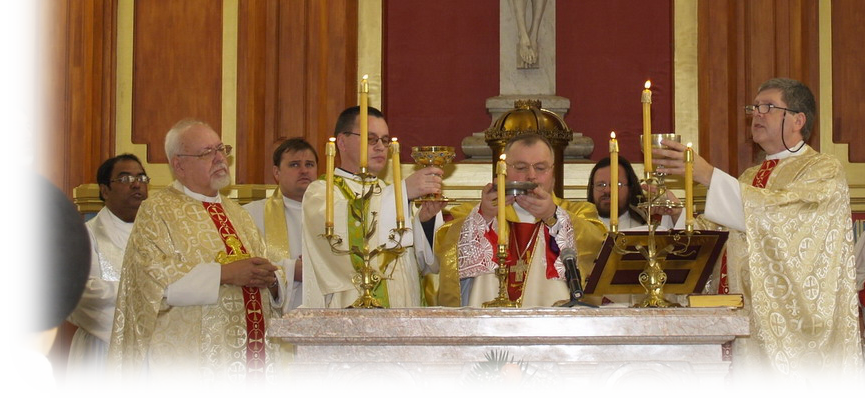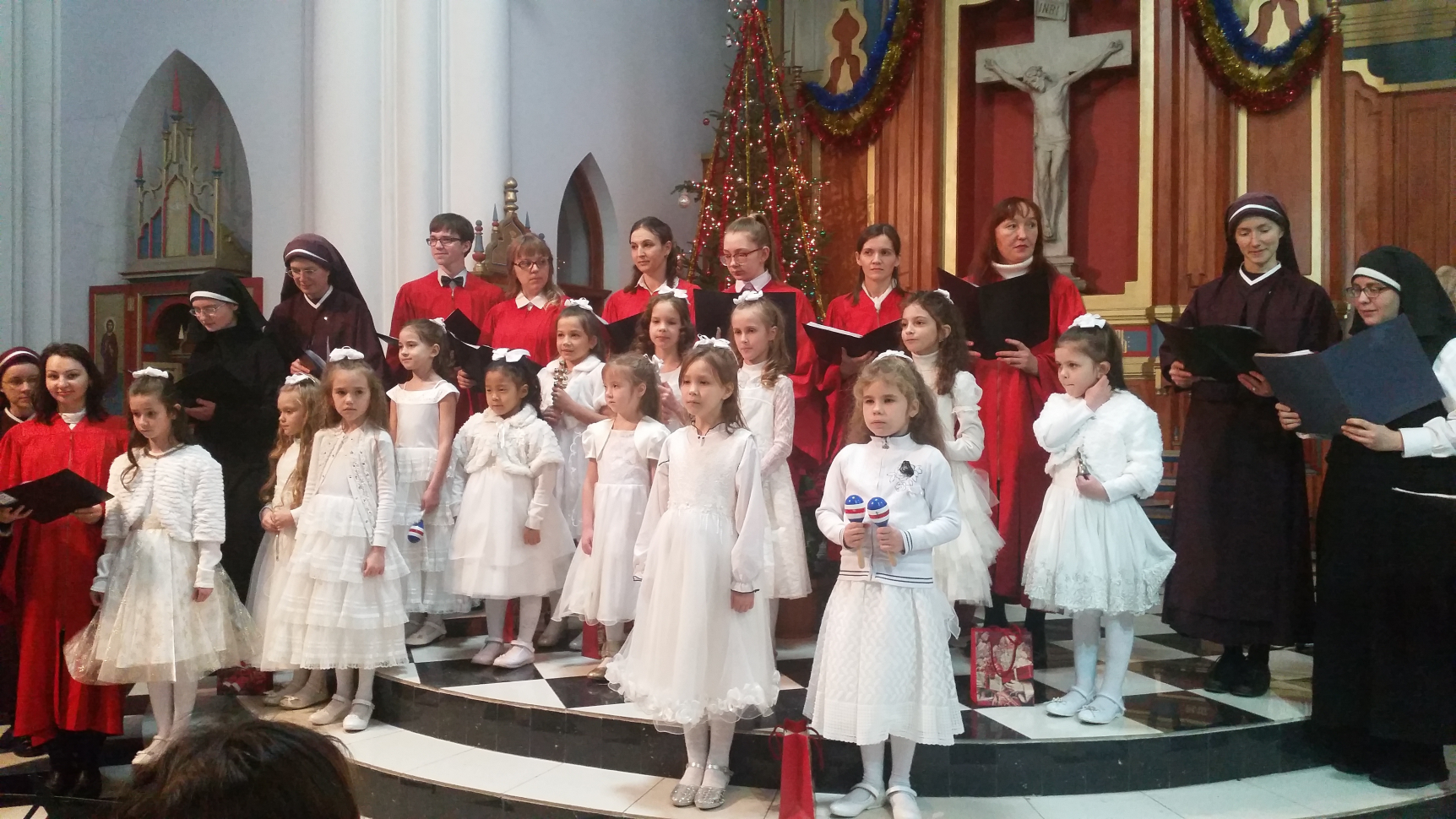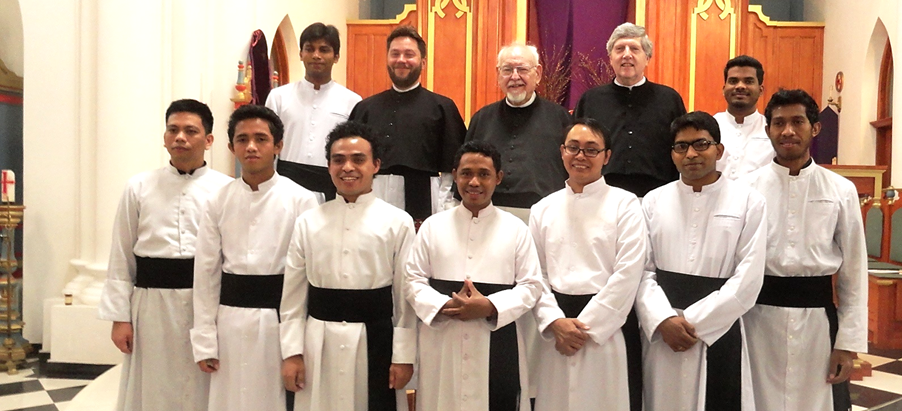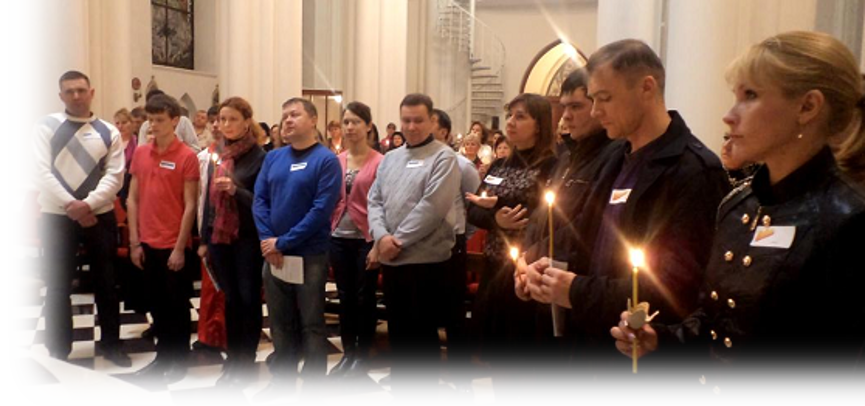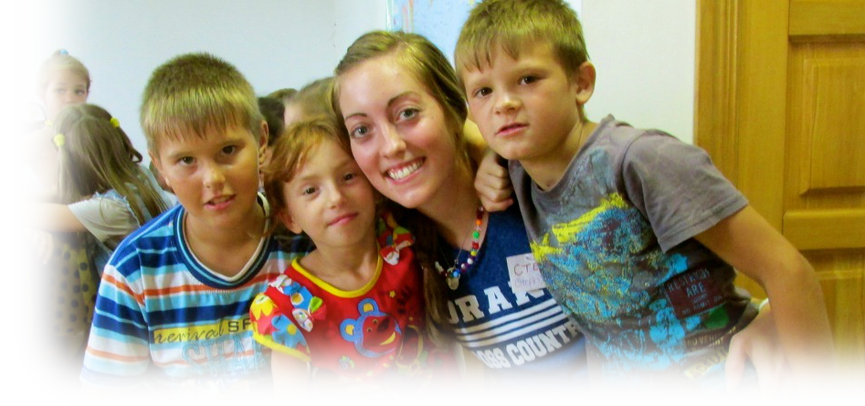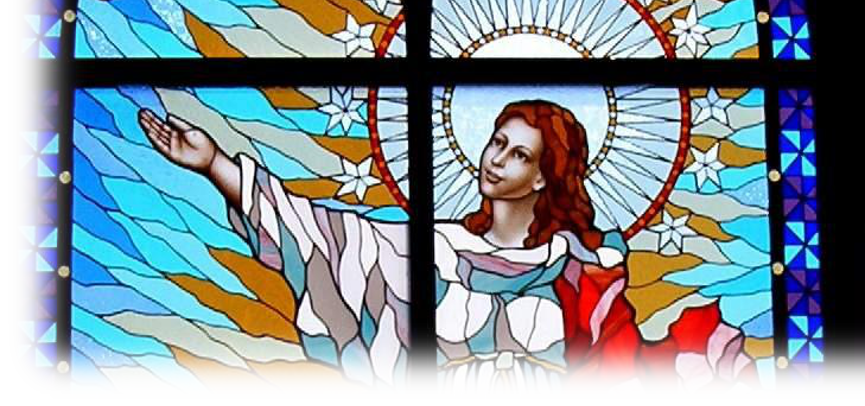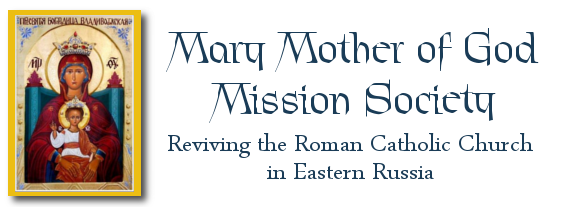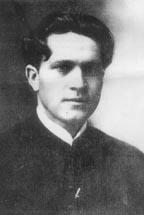(1884-1942)
Miroslava Efimova
Parish Archivist of Church of Most Holy Mother of God
Translated by Fr. Daniel Maurer, CJD
Born on April 5, 1884, in the Minsk region of the Russian Empire (at present the country of Belarus), Fr. Jerzy Jurkievicz received his seminary education at the Major Seminary in St. Petersburg, and was ordained a priest there in 1910.
After ordination, he was assigned to the Catholic parish in the city of Krasnoyarsk in the middle of Siberia. In 1912 he was transferred to the Far Eastern city of Khabarovsk where he became the Catholic chaplain to the Military Academy, associate pastor of the Catholic parish, religion instructor at a girls’ preparatory academy, and non-resident pastor of the mission parish in Nicholaevsk-on-the-Amur.
Fr. Jurkiewicz first came to Vladivostok as a visitor in 1921 for the consecration of the new stone and brick church. He was transferred there in 1923 as associate pastor, one year after the city had been taken over by the Communists at the end of the civil war (1917-1922). At that time the parish owned a number of nearby buildings which included homes for the priests and the bishop, and buildings for other parish functions.
As the Communists consolidated their power during the next several years (1926-1928), all parish buildings but the church itself were confiscated, and all people in the city were reassigned to lodgings by the new ministry of housing. At that point, Fr. Jurkiewicz’s residence was taken away, and he was assigned one room in the home of a neighbor who lived three doors from the church.
Some time after that, Fr. Jurkiewicz had purchased the summer dacha of parishioners who were fleeing the Communist persecution. The dacha was located out of town, about 15 miles from the church. He moved there in the summer of 1926.
Fr. Jurkiewicz was arrested in December 1931 and held in solitary confinement in Vladivostok for two months and seven days. He was accused of espionage in connection with Polish and Japanese diplomats, of systematic activities against the new Soviet authorities, and of illegal speculation in foreign (hard) currencies and gold. Under harsh torture he admitted to the possession of foreign currencies. (For those who lived through the civil war and who had anything valuable at all, it was common to keep it in foreign money or gold.) But he categorically denied all charges of being a spy, saying simply that the Polish consul general and his wife were parishioners and good friends.
It is known that throughout his very harsh treatment, Fr. Jurkiewicz never gave testimony to the authorities against any parishioners or acquaintances. Prisoner Jurkiewicz was found guilty of the charges and on February 6, 1932 was sentenced to ten years in prison and sent to a series of prison camps in Siberia, but it is not known exactly where he was held.
One of his Vladivostok parishioners, Regina Stanko, who had moved to the Siberian city of Tomsk, remembers receiving a letter from him from a prison camp, around 1936-1938, but the letter has been lost and she no longer remembers exactly from where it was posted. Perhaps it was from the settlement of Yaya, which grew up around a train stop in Kemerova Oblast, Siberia, of the same name. Mrs. Stanko remembered that her mother met by chance in Tomsk another parishioner who had also been a prisoner, and who testified that he had seen Fr. Jurkiewicz alive but terribly tortured and without one eye.
After religious freedom was re-established in Russia in 1991, the Vladivostok parish requested information about Fr. Jurkiewicz from the police information bureau in Kemerova Oblast, Siberia. The parish received the reply that prisoner named Georgiy Ludvikovich Jurkiewicz died in a prison camp in Novo-Ivanovsk, Kemerova Oblast, Siberia, on June 4, 1942. According to his initial sentence of ten years, he should have been freed by December 1, 1941. Information about the cause of death and the place of burial are “not available.” It is likely that the mortal remains of Fr. Jurkiewicz rest in one of the countless, nameless graveyards which clutter the landscape of Siberia.
